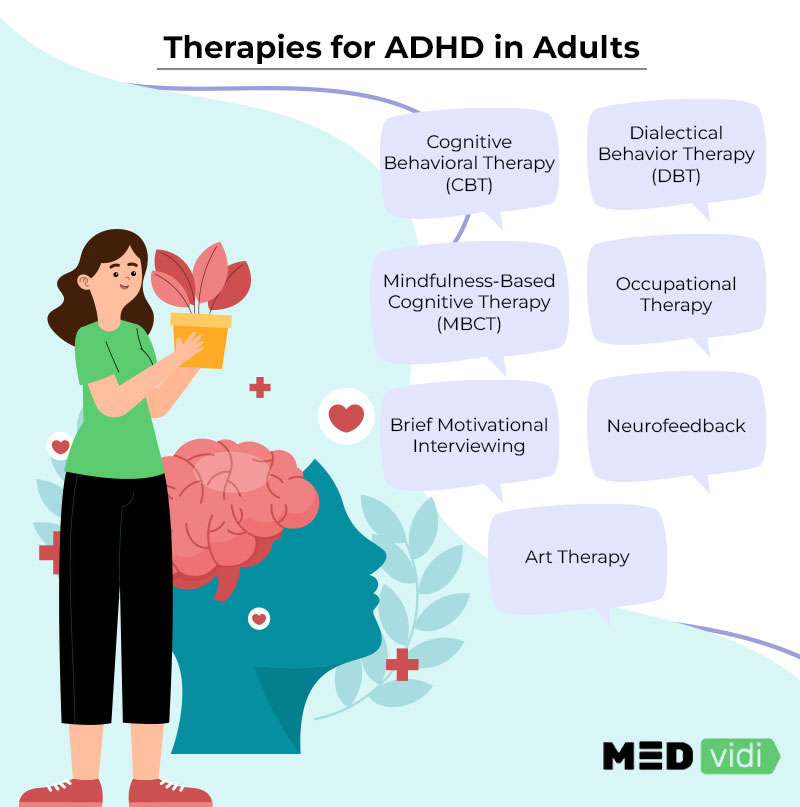Checking Out Effective ADHD Treatment Options for All Ages
The complexities of Interest Deficiency Attention Deficit Disorder Problem (ADHD) existing special challenges throughout various age, necessitating a detailed expedition of reliable treatment alternatives. A combination of behavioral treatments, pharmacological interventions, and way of life adjustments has shown promise in attending to the varied needs of individuals with ADHD. However, the efficiency of these methods can vary substantially based upon personal conditions, elevating important concerns about tailored techniques. As we analyze the spectrum of therapy methods offered, it comes to be important to think about not just their immediate effects yet also their long-term effects for individuals and family members.
Understanding ADHD and Its Influence
Attention-Deficit/Hyperactivity Condition (ADHD) is a neurodevelopmental problem characterized by consistent patterns of inattention, hyperactivity, and impulsivity that can considerably impact various elements of a person's life. It generally shows up in childhood, although signs and symptoms can persist right into their adult years. The core signs and symptoms of ADHD can interrupt educational efficiency, hinder social interactions, and complicate work-related endeavors.
People with ADHD frequently battle with preserving emphasis on jobs, organizing activities, and following up on instructions, which can cause scholastic underachievement (Depression Treatment). In social contexts, impulsivity might cause difficulties in forming and maintaining connections, as individuals may interrupt conversations or make hasty decisions without thinking about repercussions
Additionally, ADHD can co-occur with various other psychological health and wellness conditions, such as anxiousness and depression, further making complex medical diagnosis and treatment. The variability in sign presentation indicates that ADHD can affect people in different ways, demanding a tailored strategy to administration. Comprehending ADHD's complex effect is critical for creating reliable strategies that support people in navigating daily difficulties and accomplishing their capacity. Comprehensive awareness of ADHD's nature and ramifications lays the foundation for exploring appropriate therapy options tailored to each individual's demands.
Behavioral Therapies for ADHD
Many behavior modifications have been established to properly attend to the difficulties connected with ADHD, focusing on changing certain behaviors and promoting essential abilities. Amongst the most identified approaches are cognitive-behavioral treatment (CBT), parent training, and social abilities training.
CBT assists people determine and alter adverse idea patterns and behaviors, promoting a much more favorable outlook and boosted self-regulation. This treatment frequently consists of sensible techniques for handling impulsivity and improving company. Moms and dad training programs encourage caretakers by equipping them with strategies to enhance positive actions and set consistent limits, which can be especially advantageous for youngsters with ADHD.
Social abilities training is another important part, mentor individuals with ADHD just how to interact efficiently with peers - Depression Treatment. This strategy frequently entails role-playing and responses to boost communication, teamwork, and dispute resolution abilities
Integrating these behavior modifications into a comprehensive treatment strategy can substantially boost operating and lifestyle for people with ADHD. Inevitably, the efficiency of these treatments relies on customized approaches that take into consideration the unique demands of everyone, thus promoting strength and flexibility in every day life.
Medicine Options Available
For many individuals with ADHD, drug can play a significant role in taking care of symptoms and improving general functioning. Both key classifications of medicines recommended for ADHD are energizers and non-stimulants.
Energizers, such as methylphenidate and amphetamine-based medications, are one of the most typically utilized treatments. These medications function by enhancing the degrees of neurotransmitters, specifically dopamine and norepinephrine, in the brain, which aids improve attention and minimize impulsivity and attention deficit disorder. They usually generate fast outcomes, making them a preferred choice for many clients.

It is crucial for doctor to perform a thorough assessment to figure out one of the most ideal medication based on individual requirements, clinical background, and possible side results. Regular follow-up and tracking are also essential to guarantee the performance of the selected treatment and to make any type of necessary adjustments.
Way Of Living Changes to Consider
Managing ADHD properly expands past drug, as lifestyle changes can significantly enhance general well-being and symptom control. Incorporating organized regimens is vital; constant schedules help people with ADHD manage their time successfully and minimize feelings of bewilder.
Normal physical activity is another crucial part. Exercise not just aids to boost focus but additionally improves mood and minimizes tension levels. Activities such as yoga exercise or team sports can be particularly advantageous, advertising both physical conditioning and social communication.
Nourishment additionally plays a crucial function. Depression Treatment. A well balanced diet regimen rich in omega-3 fatty acids, whole grains, and lean healthy proteins can contribute to enhanced emphasis and cognitive function. Restricting sugar and refined foods is advisable, as these can worsen hyperactivity and impulsivity
Sleep health is essential for managing ADHD signs and symptoms. Establishing a routine rest routine and creating a relaxed atmosphere can improve rest quality, click for more info causing far better interest and psychological regulation.
Alternate and Holistic Methods
Different and alternative strategies to ADHD therapy provide a diverse series of options that enhance typical approaches. These approaches usually focus on way of life adjustments, nutritional interventions, and restorative practices that intend to enhance general health while addressing ADHD signs and symptoms.

Mindfulness and behavior treatments are likewise acquiring traction as holistic treatments. Practices such as yoga exercise, meditation, and cognitive-behavioral therapy can cultivate self-regulation and improve interest. These methods support emotional resilience, which is specifically valuable for people with ADHD.
Natural supplements, such as ginkgo biloba and ginseng, are often checked out; nonetheless, it is vital to consult healthcare experts prior to including these into therapy plans. While choice and alternative methods can provide useful assistance, they ought to ideally be made use of combined with evidence-based treatments to accomplish ideal results for handling ADHD across any ages.
Final Thought
In summary, effective ADHD therapy demands a detailed method that consists of behavior treatments, drug, way of living adjustments, Continued and alternative techniques. This multifaceted approach underscores the significance of individualized treatment in dealing with the diverse demands of individuals with ADHD Get More Information throughout all age groups.